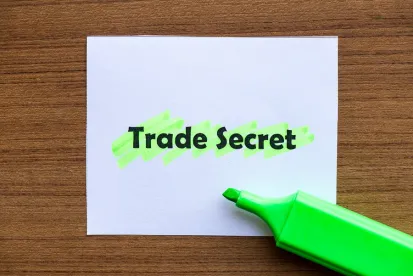In 1996, President Clinton signed the Economic Espionage Act (the “Act”). At the time, the principal proponents of the law included business leaders from the then burgeoning Silicon Valley as well as from the aerospace industry. Proponents of the Act claimed foreign entities were actively attempting to steal trade secrets and that the existing laws at the time did not adequately protect their interests. The Act, among other things, criminalized the theft of trade secrets intended to benefit “any foreign government, foreign instrumentality, or foreign agent.” Steep penalties for violations of the Act demonstrated that the United States would take economic espionage extremely seriously. Since its passage, the U.S. Government has aggressively enforced the Act against those who have sought to steal trade secrets from companies for the benefit of foreign adversaries.
Convictions for economic espionage in violation of 18 U.S.C. § 1831 can result in a prison sentence of up to 15 years. Since the Act’s initial passage, Congress has increased the potential monetary penalties for violations to $5 million. For organizations, the maximum possible fine was increased to “the greater of $10,000,000 or 3 times the value of the stolen trade secret to the organization.” Between 1996 and 2020, there were no fewer than 190 cases against 276 individual defendants for violation sunder the Act. Of these individual defendants, 31 were convicted of economic espionage under § 1831 of the Act; the remainder were convicted for theft of trade secrets under § 1832.
What is economic espionage?
Economic espionage is the act of stealing company trade secrets with the intent or knowledge that doing so “will benefit any foreign government, foreign instrumentality, or foreign agent.” 18 U.S.C. 1831(a)(1). The Act also prohibits attempts to steal trade secrets with the intent or knowledge that doing so will benefit a foreign government. 18 U.S.C. §1831(a)(4). Typically, economic espionage is directed or sponsored by a foreign power seeking to secure sensitive trade secrets or business information from U.S. based persons or entities.
Unlike other forms of espionage in the business sector, such as corporate espionage which serves a commercial purpose, the motives behind economic espionage are not always economic in nature. As seen in recent years, one motive may be to close technological or military gaps. Thus, while the risks associated with economic espionage to a company are clear, they may also represent a national security threat. While the Office of the Director of National Intelligence has identified China, Russia, and Iran as the three states most capable of committing economic espionage, it also notes that “[c]ountries with closer ties to the United States also have conducted cyber espionage to obtain U.S. technology.” Nat’l Counterintelligence and Sec. Ctr., Foreign Economic Espionage in Cyberspace (2018).
Section 1832 of the Act also punishes the theft of trade secrets that benefits “anyone other than the owner thereof.” Thus, the Act reaches all trade secret theft whether or not the motives are retributory, monetary, or clandestine. A separate article discussing trade secret theft as proscribed by 18 U.S.C. § 1832 will be published at a later date.
What actions lead to prosecution?
To convict an individual under § 1831 of the Act, prosecutors must prove “(1) [the defendant] intended to benefit a foreign government; (2) [the defendant] knowingly possessed trade secret information; (3) [the defendant] knew that the information was obtained without authorization; (4) the information [the defendant] possessed was, in fact, a trade secret; and (5) [the defendant] knew the information was a trade secret.” United States v. Chung, 633 F. Supp. 2d 1134, 1146 (C.D. Cal. 2009).
In 2009, Dongfan “Greg” Chung became the first person ever convicted by a jury for violations under § 1831 of the Act. That case also made the requirements for prosecution under the Act more difficult. Chung was accused of misappropriating “sensitive aerospace and military information belonging to his employer.” He was alleged to have kept over 300,000 pages of documents reflecting his company’s trade secrets and proprietary information. In addition to proving the elements of the crime, the court held that prosecutors also had to prove whether Chung knew the documents amounted to trade secrets. “Whether the information was a trade secret is the crucial element that separates lawful from unlawful conduct. Possession of open-source or readily ascertainable information for the benefit of a foreign government is clearly not espionage.”
However, the court also noted that determining whether something is a trade secret is not difficult. Prosecutors could show that the facility storing the information was gated, required multifactor authentication, or that documents were labeled as trade secrets. Additionally, defendants who were employees, as Chung was, would be aware of the company’s internal security policies. Chung’s argument that prosecutors must prove knowledge that the materials are trade secrets was ultimately accepted. Nonetheless, the court determined that there was significant evidenced to demonstrate his knowledge of the documents’ proprietary status. Chung, who was 74 at the time, was subsequently sentenced to 188 months in prison.
The statute also permits the prosecution of companies that violate the Act. In 2012, four foreign based companies were indicted on charges that they violated § 1831 of the Act. United States v. Pangang Grp. Co., Ltd., 6 F.4th 946, 949 (9th Cir. 2021). Prosecutors allege that Walter Liew was tasked by certain foreign based companies with obtaining certain trade secrets from a company. Id. Liew hired numerous people, including former employees of the target company, with the intent of unlawfully transferring the target company’s trade secrets to his own company, USA Performance Technology, Inc. (“USAPTI”). Id. Those trade secrets were subsequently transferred to the foreign based companies. Ultimately, Liew and USAPTI were convicted under the Act. United States v. Liew, 856 F.3d 585, 589 (9th Cir. 2017).
More recently, the foreign intelligence officer Yanjun Xu was extradited to face prosecution under the Act. Xu was convicted of utilizing multiple aliases to target companies in the aviation field. Xu identified experts in the field who worked with the target companies and recruited them to provide information. Specifically, it was alleged that Xu attempted to steal technology “related to GE Aviation’s exclusive composite aircraft engine fan – which no other company in the world has been able to duplicate.” (DOJ Press Release 21-1100). Xu was ultimately found guilty in late 2021.
Penalties for violations of the Act can be steep. In United States v. Chung, the 188 month sentence for the 74 year old effectively amounted to a life sentence. Walter Liew was sentenced to 144 months in prison, required to forfeit $27.8 million in illegal profits, and pay $511,667.82 in restitution. Further, Yanjun Xu currently faces up to 60 years in prison and fines that could be as high as $10.75 million after his conviction.
How to avoid?
Economic espionage can occur from both internal and external sources. When considering external sources, bad actors will exploit security vulnerabilities to insert malware or other forms of duplicitous software. Engaging in regular risk assessments to identify possible vulnerabilities can help reduce the risk of data breaches.
When considering ways to mitigate risks from internal sources, companies should ensure that trade secrets are clearly marked and maintained on secure servers. As United States v. Chung makes clear, the knowledge of a trade secret’s proprietary status is crucial. Clearly marking and identifying trade secrets will not only allow prosecutors to prove cases where economic espionage occurs, but will help prevent any possible inadvertent disclosures of trade secrets at the company. Further, while many companies may not have the resources to require multiple levels of security, they can still protect trade secrets by storing them on separate servers or requiring multifactor authentication to gain access to them. Regular background checks for those who have access to information that a company considers especially classified will also reduce the risk of bad actors disclosing trade secrets.
While the financial impacts provide their own incentives, the national security implications mean that the U.S. Government will consider cases of economic espionage particularly egregious. As the aforementioned cases demonstrate, prosecutors take violations of the Act seriously, and the penalties are steep. Due to the national security implications of economic espionage, companies engaged in work for the government or in sensitive industries, whether directly or indirectly, should take the threat it poses seriously.
This article represents the first installment in a series exploring the laws regarding economic espionage, theft of trade secrets, and the ways in which companies may protect their interests. Throughout this series, we will examine available remedies to victims, how to respond to the loss of trade secrets, and related topics. The Economic Espionage and Theft of Trade Secrets Series will be regularly updated.






 />i
/>i
